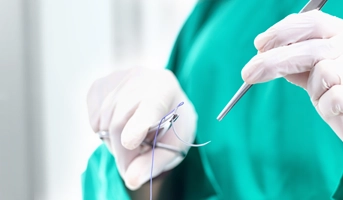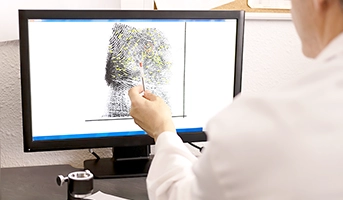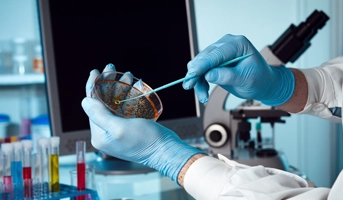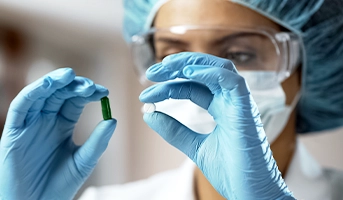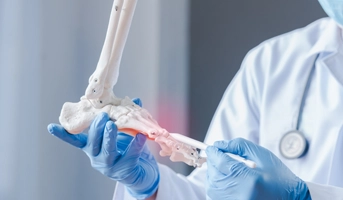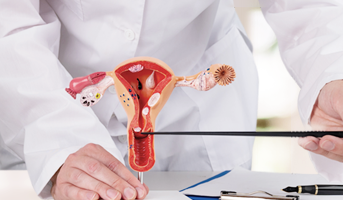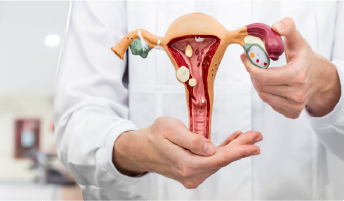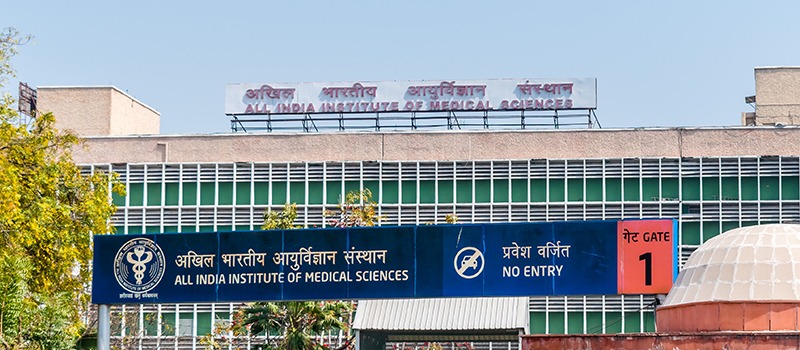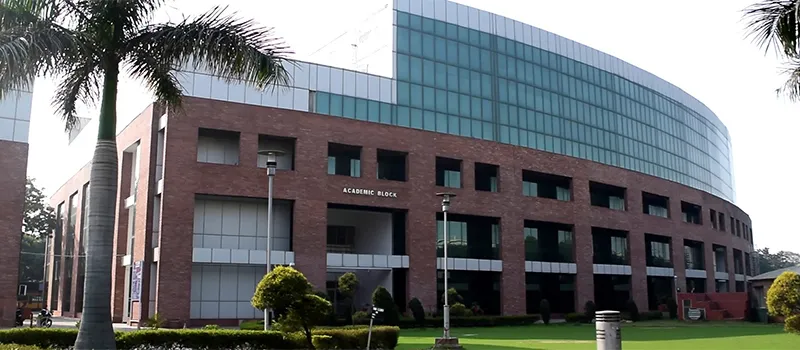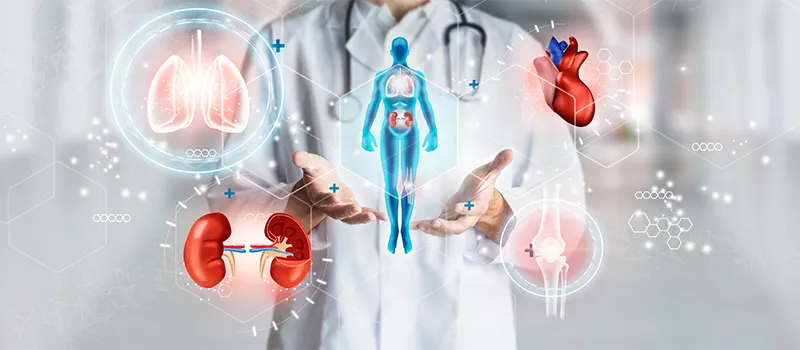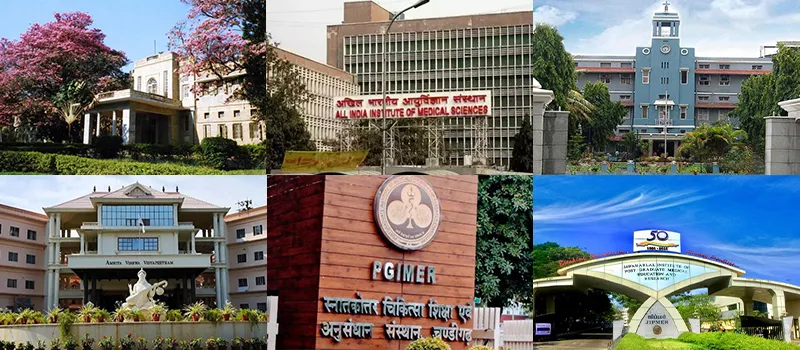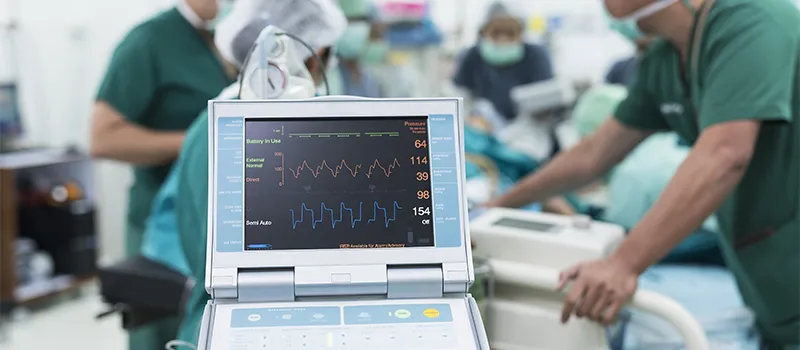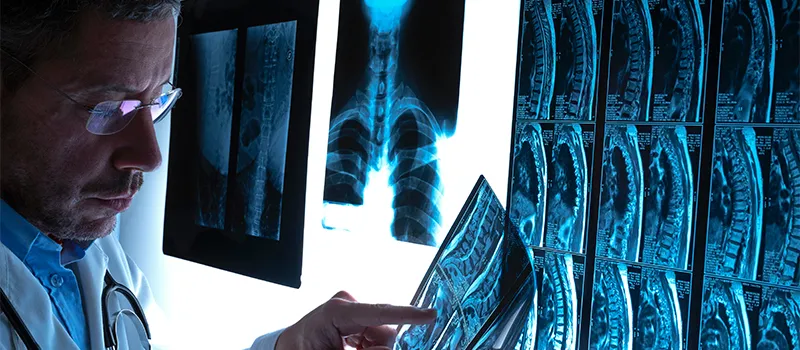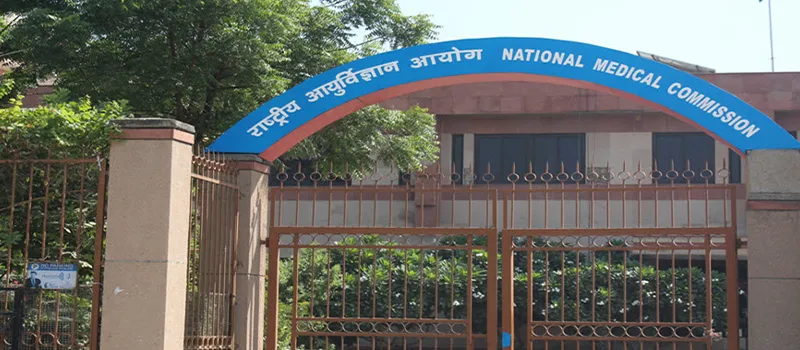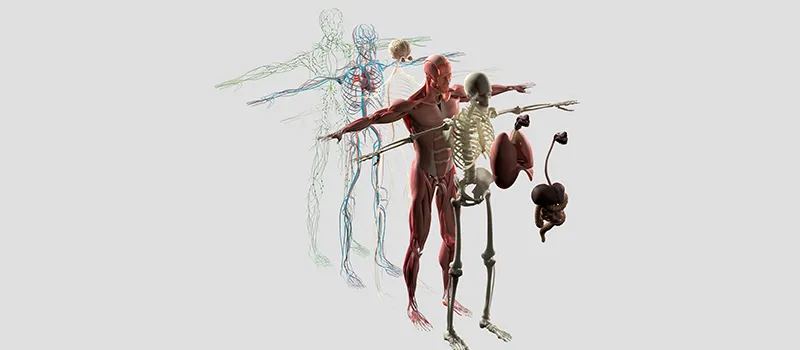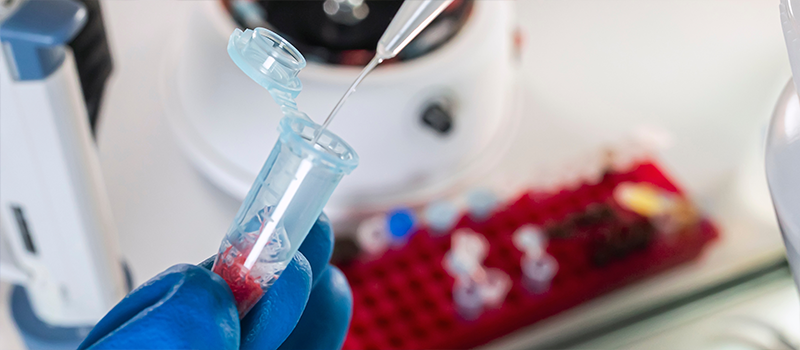

Career as a Pathologist: How to Become, Subspecialities, Salary & Scope
Pathology is a medical specialty that deals with the causes and nature of disease. By delivering early and accurate diagnoses, which are crucial for successful treatment, pathologists play a crucial role in patient care.
A pathologist works with the causes and characteristics of illness and employs information acquired from the laboratory application of the biological, chemical, and physical sciences to aid in diagnosis, prognosis, and therapy. For the diagnosis and monitoring of illness, this specialist uses data obtained from microscopic inspection of tissue samples, cells, and bodily fluids as well as from clinical laboratory testing on bodily fluids and secretions. By delivering early and accurate diagnoses, which are crucial for successful treatment, pathologists play a crucial role in patient care.
If you are good at going with a microscope as your friend than a stethoscope, then pathology is a great option to choose as a specialty. This specialty is more of working behind the scenes sitting for long hours diagnosing rather than directly dealing with the patients.
Steps for Becoming a Pathologist
- Complete your 12th standard in the Science stream with a minimum of 55% aggregate.
- Then you have two options for your undergraduate degree, either you can go with an MBBS undergraduate degree, or you can go with a B.Sc. in Pathology. The former is more into medicine side while the latter is a basic health and allied sciences degree. Depending on your preference and educational qualification, you can choose between both. To pursue an MBBS degree, you must crack the NEET-UG entrance examination with a competitive score. You can opt for a government or private college for any of the undergraduate courses as per your preference and score. Always seek proper guidance before choosing a medical college.
Must Read: Things to know before choosing a medical college.
- After completing graduation, you must complete your postgraduation in pathology. If you did an MBBS, then go with an MD in Pathology degree and if you opted for BSc then go with an MSc Pathology degree. To pursue MD Pathology, you need to score high in the NEET-PG/INI-CET and for M.Sc. Pathology, you need to follow the admission procedure of the particular college.
- Then after completing postgraduation, you need to gain experience, then you have the option to pursue fellowship courses in various pathology subspecialities. You can also opt for a Ph.D. programme.
Apart from a degree, you also have the option to pursue a Diploma in Pathology or relevant certification courses.
Top Medical Colleges to Pursue MD Pathology in India
- AIIMS, Delhi
- Christian Medical College, Vellore
- Grant Government Medical College, Mumbai
- AFMC, Pune
- JIPMER, Puducherry
- Kasturba Medical College, Manipal
- IPGME&R and SSKM Hospital, Kolkata
- KGMU, Lucknow
- St. John’s Medical College, Bangalore
- Lady Hardinge Medical College, New Delhi
- Maulana Azad Medical College, New Delhi
- VMMC, New Delhi
Pathologists employ a wide range of instruments and methods to investigate illness, such as:
- Microscopical analysis of tissue samples: Pathologists use microscopes to analyse tiny slices of tissue in search of anomalies that might be signs of illness.
- Testing in the laboratory: Pathologists do several tests in the lab on tissues and bodily fluids to determine the concentrations of various chemicals, including hormones, enzymes, and proteins. These examinations can support illness diagnosis, track disease development, and evaluate therapy effectiveness.
- Autopsies: Pathologists examine a deceased person’s body after death to ascertain the cause of death and learn more about any ailments they may have had.
List of Pathology Subspecialities
Pathology is a broad specialty that encompasses a variety of subspecialties, including:
- Transfusion Medicine
- Chemical Pathology
- Cytopathology
- Dermatopathology
- Histopathology
- Forensic Pathology
- Hematopathology/Hematology
- Molecular Genetic Pathology
- Neuropathology
- Pediatric Pathology
- Pulmonary Pathology
- Renal Pathology
- Surgical Pathology
- Clinical Pathology
- Molecular Pathology
Skills Required for Becoming a Pathologist
A skilled pathologist should be well-versed in the following:
Establish a diagnosis for common and difficult clinical issues using histopathology (surgical pathology) and cytopathology specimens, blood and bone marrow examinations, and different laboratory medicine tests (clinical pathology, Blood Banking (Transfusion Medicine), and clinical biochemistry.
Construct correlations between clinical and laboratory data to ensure that clinical disease symptoms can be explained.
Suggest the proper samples and tests to conduct to reach a diagnosis in a difficult case.
Compare pathology results from an autopsy with those from the clinic, the causes of disease-related deaths, and their miscorrelations (other than isolated metabolic causes).
Should be competent to instruct pathology to nursing students, postgraduates, undergraduates, and paramedical professionals, including lab staff.
Be able to work as a team, cultivate a cooperative attitude among coworkers, and communicate with patients, clinicians, and other coworkers to offer the best diagnostic or opinion.
Always uphold ethical values, maintain an appropriate demeanour in interactions with patients, family members, and other medical professionals, and respect the patient’s rights, including access to information and a second opinion.
Capable of carrying out standard procedures in a pathology lab, such as grossing specimens, processing, slicing paraffin and frozen sections, and staining.
Capable of routinely performing non-invasive outpatient procedures like venipuncture, finger pricks, fine needle aspirations of superficial lumps, and bone marrow aspirates in order to collect specimens, and to give appropriate assistance to colleagues performing invasive procedures like a biopsy or an imaging-guided biopsy.
Salary and Scope of Pathologist
Pathology is a highly promising job as no diagnosis is complete without pathology. Pathologists are in great demand, and the job outlook for them is predicted to improve over the coming ten years at a faster-than-average rate. Pathologists can find employment in a range of places, such as hospitals, clinics, research facilities, diagnostic labs, and governmental organisations. After completing your medical education and gaining experience in Pathology, you can open your diagnostic pathology centre.
Pathologists have a highly diverse range of employment options and several prospects for progression. Anatomic pathology, clinical pathology, and forensic pathology are just a few examples of the areas of pathology in which pathologists might specialise.
For those with a passion for science and medicine, attention to detail, and strong analytical abilities, pathology is a good speciality. Additionally, pathologists must be able to operate both alone and collaboratively. On average, a pathologist earns 50K to 80K per month and it varies depending on the area of employment.
The job profiles associated with pathologist include Clinical Pathologist, Professor/Lecturer, Forensic Pathologist, Clinical Researcher Associate, Medical Writer, Transfusion Medicine Specialist, and more.
Best Books for Studying Pathology
- Prof Harsh Mohan’s Textbook of Pathology
- Exam Preparatory Manual for Undergraduates Pathology by Ramadas Nayak and Sharda Rai
- Rapid Review of Hematology by Ramadas Nayak and Sharda Rai
- Review of Pathology and Genetics by Gobind Rai Garg and Sparsh Gupta
- Robbins & Cotran Pathologic Basis of Diseases by Vinay Kumar, Abul K. Abbas, and Jon C. Aster
- Fundamentals of Pathology by Husain A. Sattar
- Surgical Pathology of the GI Tract, Liver, Biliary Tract and Pancreas
- Cytopathology Review by Fang Fan and Ivan Danjanov
- Gray’s Diagnostic Cytopathology
- Rosai and Ackerman’s Surgical Pathology
- Atlas and Text of Haematology by Tejinder Singh
- Orell’s Atlas of Aspiration Cytology
- Lever’s Dermatopathology
By offering precise and fast diagnoses, which are necessary for efficient treatment, pathologists play a crucial role in the healthcare industry. They also strive to create innovative diagnostic methods and disease-specific therapies.
Frequently Asked Questions (FAQs)
Q1. What should I do after 12th to become a Pathologist?
Ans. After completing the 12th standard, either you can go with an MBBS undergraduate degree, or you can go with a B.Sc. in Pathology. The former is more into medicine side while the latter is a basic health and allied sciences degree. Depending on your preference, you can choose between both. To pursue an MBBS degree, you must crack the NEET-UG entrance examination with a competitive score, and for a B.Sc., you need to follow the admission procedure of the particular college. You can opt for a government or private college for any of the undergraduate courses as per your preference and entrance exam score. Always seek proper guidance before choosing a medical college.
Q2. What are the career prospects for pathologists?
Ans. Pathologists can find employment in a range of places, such as hospitals, clinics, research facilities, diagnostic labs, and governmental organisations. After completing your medical education and gaining experience in Pathology, you can open your diagnostic pathology centre. The job profiles associated with pathologist include Clinical Pathologist, Professor/Lecturer, Forensic Pathologist, Clinical Researcher Associate, Medical Writer, Transfusion Medicine Specialist, and more.
Q3. How good is pathology as a career?
Ans. Pathology is a highly promising job as no diagnosis is complete without pathology. Pathologists are in great demand, and the job outlook for them is predicted to improve over the coming ten years at a faster-than-average rate. Pathologists can find employment in a range of places, such as hospitals, clinics, research facilities, diagnostic labs, and governmental organisations. After completing your medical education and gaining experience in Pathology, you can open your diagnostic pathology centre. Pathologists have a highly diverse range of employment options and several prospects for progression. Anatomic pathology, clinical pathology, and forensic pathology are just a few examples of the areas of pathology in which pathologists might specialise.
Q4. What is the salary of an MBBS MD pathologist in India?
Ans. On average, a pathologist earns 50K to 80K per month and it varies depending on the area of employment. The job profiles associated with pathologist include Clinical Pathologist, Professor/Lecturer, Forensic Pathologist, Clinical Researcher Associate, Medical Writer, Transfusion Medicine Specialist, and more.
Related post
Related Courses
Cosmetic Botulinum Toxin Simplified
Dr Rasya Dixit , Dr Urmila Nischal , Dr K. C Nisch...
Critical Care Simplified
Dr Yatin Mehta , Dr Subhal Dixit , Dr Kapil G. Zir...
Advance Course in Ultrasound and Infertility
Dr Sonal Panchal , Dr Chaitanya Nagori
Ganga Videos on Spine Surgery
Prof Rajasekaran Shanmuganathan , Dr Ajoy Prasad S...
Pathology for UnderGrads
Prof Harsh Mohan , Prof Ramadas Nayak , Dr Debasis...
Microbiology for UnderGrads
Dr Apurba S Sastry , Dr Sandhya Bhat , Dr Deepashr...

